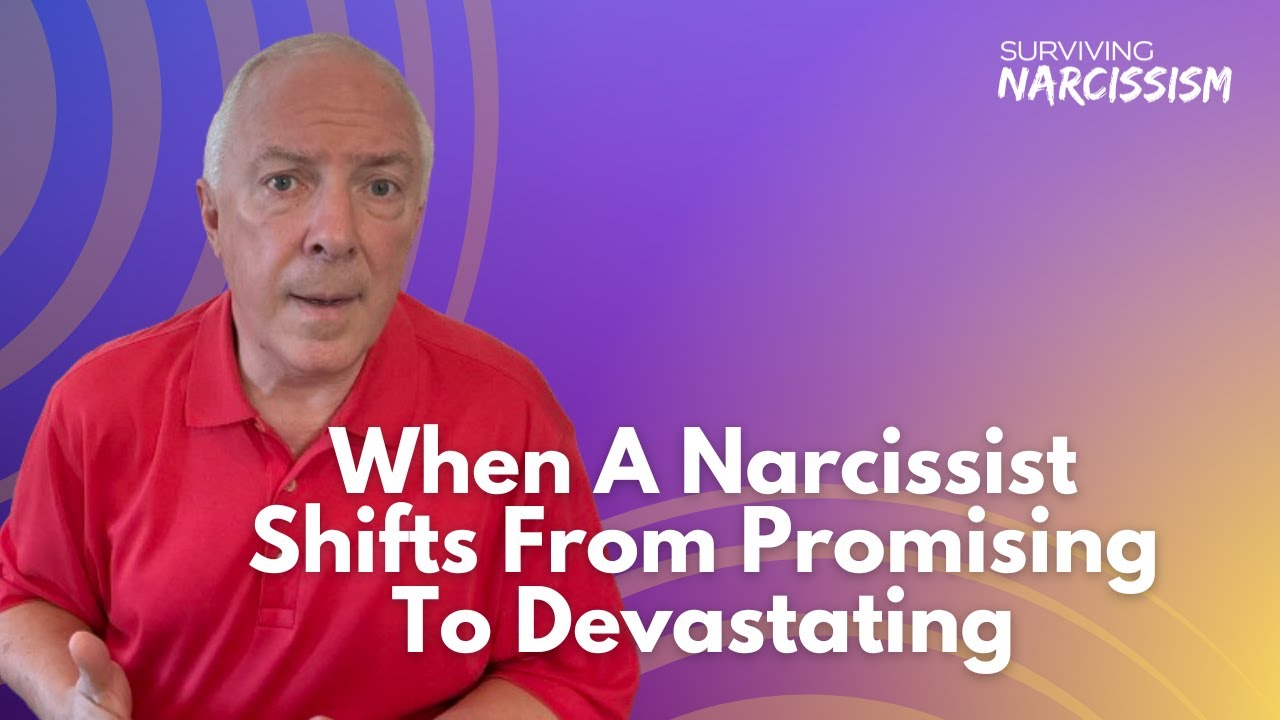#Narcissists MISTAKE Your MEEKNESS For WEAKNESS! Until YOU USE YOUR POWER TO INFLICT PAIN UPON THEM!
Summary
TLDRIn this video, the speaker discusses how narcissists often mistake meekness for weakness in relationships. They explain that narcissists target individuals with high emotional empathy, using their vulnerabilities to manipulate and control. However, the speaker emphasizes that this meekness is actually a powerful strength under control. As narcissists push their victims too far, the speaker warns that this strength can be unleashed, leading to consequences the narcissist didn't expect. The video encourages individuals to recognize their worth, set boundaries, and not return to toxic relationships after they've stood up for themselves.
Takeaways
- 😀 Narcissists often mistake meekness for weakness, not understanding that it represents strength and power under control.
- 😀 Narcissists look for individuals who are emotionally dependent, seeking constant validation and interactions with their emotions.
- 😀 Relationships with narcissists are typically one-sided, with the narcissist taking more than they give.
- 😀 Narcissists avoid vulnerability, making it difficult to connect on a deeper, more authentic level.
- 😀 People with empathy and high pain tolerance are often targeted by narcissists for their ability to endure emotional manipulation.
- 😀 Once a person with high emotional empathy reaches their limit, they can become a powerful force, surprising the narcissist.
- 😀 Meekness should not be mistaken for weakness—it is a controlled strength that the narcissist cannot fully comprehend.
- 😀 Narcissists often push people to their breaking point, triggering a reaction that they never anticipated.
- 😀 After setting boundaries and confronting narcissists, it's often necessary to cut ties completely, as they never learn from their mistakes.
- 😀 People with emotional strength and empathy can eventually turn the tables on narcissists, sometimes leading to irreversible consequences for the narcissist.
- 😀 While dealing with narcissists, it's crucial to be aware of the external pressures in life and avoid allowing their toxic behavior to further disrupt your peace.
Q & A
What does the speaker mean by 'meekness is not weakness'?
-The speaker emphasizes that meekness should be understood as strength and power under control, not as a vulnerability or weakness. It's about having the ability to control one's emotions and reactions in challenging situations.
Why do narcissists target individuals with high empathy and pain tolerance?
-Narcissists look for individuals who can endure emotional pain and who may be more willing to forgive or tolerate mistreatment. They see such individuals as easier to manipulate and control.
What is the key characteristic of narcissistic relationships?
-Narcissistic relationships are often one-sided, where the narcissist takes more than they give. They manipulate emotions and interactions for personal gain, without forming true, vulnerable connections.
Why does the speaker say narcissists can't connect on a deeper level?
-Narcissists often have emotional barriers due to unresolved traumas, making it difficult for them to connect on a human or spiritual level. This lack of vulnerability prevents them from forming meaningful, mutual relationships.
How does the speaker describe the impact of constant emotional manipulation in narcissistic relationships?
-The speaker describes constant emotional manipulation as exhausting, where the victim is continuously reacting to the narcissist's behavior, which prevents real emotional connection and leaves the victim feeling drained and confused.
What is the danger of staying in a relationship with a narcissist, according to the speaker?
-The danger lies in the narcissist's inability to change, and the risk of becoming emotionally damaged or trapped in a cycle of manipulation. The speaker warns that staying too long can cause irreversible emotional harm.
How does the speaker suggest individuals can deal with narcissistic abuse?
-The speaker encourages individuals to recognize their own emotional strength, set firm boundaries, and take action to remove themselves from abusive situations. It’s about reclaiming personal power and not allowing narcissists to manipulate emotions.
What does the speaker mean by 'Unleash the Beast'?
-'Unleash the Beast' refers to the moment when an individual, pushed to their limit, taps into their hidden strength and resilience, often in response to narcissistic abuse. It signifies standing up for oneself and not allowing further mistreatment.
What is the ultimate message about returning to a narcissistic relationship?
-The speaker warns that returning to a narcissist after they have been confronted or removed is dangerous, as the narcissist will likely retaliate and the situation will worsen. It’s crucial to never go back once boundaries have been established and action has been taken.
What role does empathy play in a narcissistic relationship?
-Empathy plays a significant role in that narcissists often prey on individuals who possess high empathy, as they can manipulate these people by exploiting their compassion and emotional sensitivity for personal gain.
Outlines

This section is available to paid users only. Please upgrade to access this part.
Upgrade NowMindmap

This section is available to paid users only. Please upgrade to access this part.
Upgrade NowKeywords

This section is available to paid users only. Please upgrade to access this part.
Upgrade NowHighlights

This section is available to paid users only. Please upgrade to access this part.
Upgrade NowTranscripts

This section is available to paid users only. Please upgrade to access this part.
Upgrade NowBrowse More Related Video

#Narcissists THINK They ARE GOING To GET By And AWAY! OH BUT THEIR FOOLISHNESS Has A GPS ON THEM!!

What The #Narcissist THINK & REMEMBER About YOU When They CAN NEVER COME BACK To YOU

What The #Narcissist MEANT When They SAID: “I DON’T WANT TO LOSE YOU”

When A Narcissist Shifts From Promising To Devastating

How Narcissists Turn Their Chaos Into Your Problem

The 18 Characteristics of Narcissists
5.0 / 5 (0 votes)